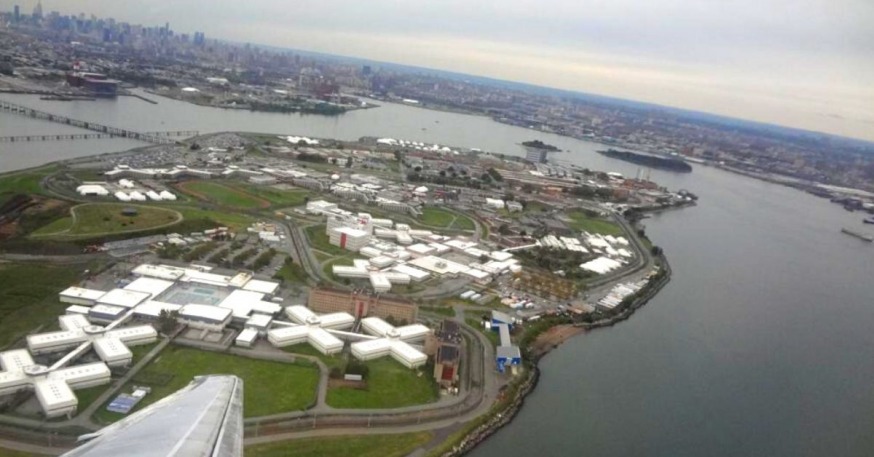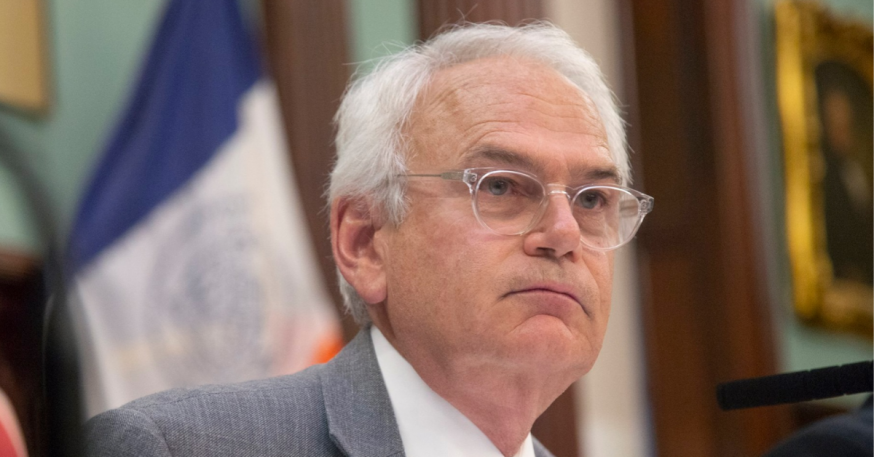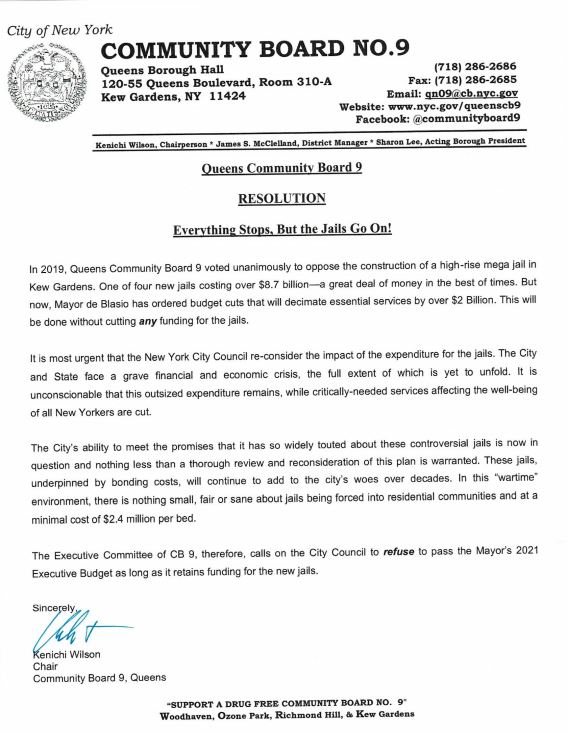
Tim Rodenberg (Flickr, Creative Commons Licence)
May 21, 2020 By Michael Dorgan
Queens Community Board 9 has called on the city council to vote against the funding of borough-based jails in the upcoming 2021 budget.
The executive committee for CB9, which represents Kew Gardens, Richmond Hill, Woodhaven and Ozone Park, passed a resolution on May 15 opposed to the funding of the four community-based jails. The jails are being built to replace the incarceration facility on Rikers Island, which is expected to be shuttered by 2026.
CB9’s resolution said that the city cannot afford the $8.7 billion project while a proposed $2 billion in essential services are to be shaved off next year’s budget following the COVID-19 economic shutdown.
The mayor has made cuts to how much is being allocated in the city budget for the jails in the next three years– with the difference to be made from 2025 to 2027, according to reports.
The board is urging the city council–when it negotiates the budget with the mayor next month–not to fund the jails given the financial strain the city now faces.
The CB9 board believes the entire jail plan should now be reviewed and reconsidered due to the scarcity of resources.
“It is unconscionable that this outsized expenditure remains, while critically needed services affecting the well-being of all New Yorkers are cut,” the resolution states.
“The executive committee of CB9, therefore calls on the city council to refuse to pass the Mayor’s 2021 Executive Budget as long as it retains funding for new jails.”
The passage of a Community Board resolution– although merely advisory– sends a message to city lawmakers.
CB9’s resolution was passed at a time when the city is projected to lose $7.4 billion in tax revenue through June 30, 2021, according to the mayor’s executive budget released last month.
De Blasio has trimmed his proposed city budget by $6 billion, to $89.3 billion to make up for the shortfall.

Council Member Robert Holden (Facebook)
Councilman Robert Holden agreed with the resolution and said that a cost-effective alternative should have been considered from the outset.
Holden previously called for the creation of a commission to study the cost of rebuilding Rikers, before going ahead with the borough-based jail proposal.
“Our constituents across the city have proven that they do not support borough-based jails, and cutting funding to the services that they need most is an insult to all New Yorkers,” he said.
CB9, along with the three other community boards – in the Bronx, Brooklyn, and Manhattan – where the jails will be constructed all rejected the plans last year. However the plan was approved under a Uniform Land Use Review Process (ULURP) by the city council in October.
Furthermore, Holden said that the planned high rise jails would not be conducive to social distancing or help prevent the spread of COVID-19.
“I suspect that the outbreak inside these jails would be much worse than what we have seen on Rikers Island,” he said.
The new Kew Gardens jail, which will replace the decommissioned detention facility at 182-02 82nd Ave. will rise 19 stories and house 886 inmates.
De Blasio wants the Rikers Island facility closed by 2026 as part of his administration’s strategy to reduce mass incarcerations in the city. There are currently 3,931 people incarcerated in the city as of May 20, according to the Board of Correction.
The mayor wants the city average to be below 3,300 by the time Rikers finally closes.

The CB9 resolution calls on the city council to refuse to pass the Mayor’s 2021 Executive Budget as long as it retains funding for new jails.






